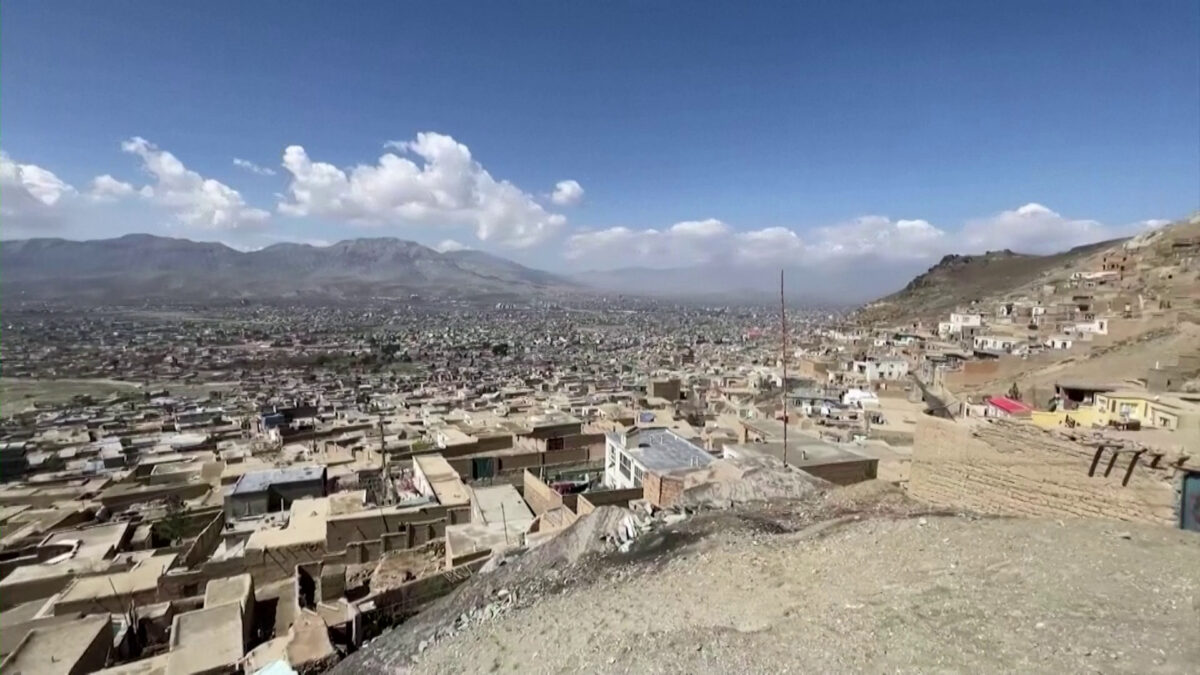A USAID official has confirmed that a $49 million American humanitarian program to aid war victims in Afghanistan will close within the next few weeks.
Nitin Madhav, director of the office of Afghanistan affairs at the U.S. Agency for International Development (USAID) said in an interview with Stars and Stripes that the Conflict Mitigation Assistance for Civilians (COMAC) program will end on June 30.
Madhav said while the Taliban had attempted to interfere with the selection of where aid went, the end of the program was not tied to this issue as it had been scheduled from the outset to close in 2023, Madhav said.
The program was established in 2018 to aid civilians affected by insurgent attacks and military operations.
In the five years of its existence, the USAID program assisted more than 40,000 people in Afghanistan, Madhav said, adding that it doesn’t provide assistance to the Taliban.
He said the 35 remaining staff members had completed final aid deliveries and requested a 14-week extension of the program for closing offices and disposing of equipment.
The US Special Inspector General for Afghanistan Reconstruction (SIGAR) meanwhile reported in April that the US continued to authorize humanitarian aid to the country despite concerns that such aid may legitimize the Taliban.
“U.S. aid to Afghanistan … may inadvertently confer legitimacy onto the Taliban, both internationally and domestically,” according to the report.
SIGAR also gave a report back on the COMAC program in April, stating it had been established to aid Afghan civilians and their dependent family members who experienced loss of life, injury, or lack of economic livelihood due to military operations, insurgent attacks, unexploded ordnance such as landmines, improvised explosive devices, or cross-border shelling.
“COMAC’s support activities include tailored assistance, including physical rehabilitation, counseling, economic reintegration, medical referrals, and immediate assistance in the format of in-kind goods, such as essential food and household sanitary items,” SIGAR stated.
However, operating procedures were changed following the Taliban takeover in order for the program to continue “activities without providing capacity-building assistance to Taliban-controlled governing institutions.”
SIGAR reported however that according to USAID, COMAC staff encountered various instances of Taliban interference.
“In December 2022, COMAC’s implementing partner directed all female staff to work from home following the Taliban’s ban on female employment with NGOs. In addition, the Taliban general directorate of intelligence and the ministry of martyrs and disabled affairs (MoMDA) requested personnel and beneficiary information prior to distribution and pressured COMAC to sign new permission letters with Taliban authorities,” the SIGAR report stated.
COMAC staff negotiated with the Taliban’s ministry about signing a new permission letter that met USAID guidelines, the report stated.
But, interference continued and in several provinces local Taliban authorities also pressured COMAC staff to assist identified individuals. “In Parwan, for example, the local head of martyrs and disabled affairs requested COMAC staff to provide 10% of their assistance to Taliban personnel,” the report read.
In late January, the Taliban’s ministry accused COMAC staff of failing to coordinate with Taliban authorities, including providing beneficiary information, and conducting distributions without approval in Herat, Parwan, and Ghazni provinces.
“In justifying their interference and demands on NGOs, the Taliban have often leveled accusations of corruption. In this instance, one Taliban official in Herat accused COMAC personnel of being ‘thieves’; as a result, MoMDA directed all constituent directorates to suspend COMAC distributions on MoMDA premises, despite MoMDA providing COMAC a permission letter that explicitly states project staff are not required to share beneficiary lists,” SIGAR reported.
It was only in mid-March, that COMAC staff reported that they were able to resume operations in all three provinces after resolving this dispute.
However, Abdul Qahar Balkhi, a spokesman for the Taliban’s foreign affairs ministry, told Stripes that his office had not received any complaints about these incidents.
USAID meanwhile said it continues to explore options to extend support to victims of the conflict beyond June.





